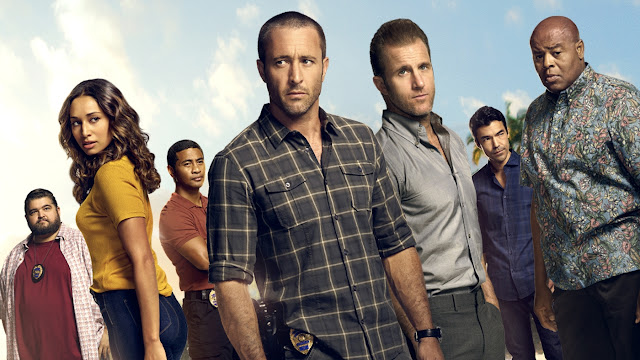 |
GOFUNDME
RIP John Eric Swing. |
The announcement of the appointment of John Eric Swing as the new executive director of Search to Involve Pilipino Americans (SIPA) never got sent out. Instead the press release that was sent out was the announcement of Swing's death.
Swing, 48, died Sunday, June 28, another victim of the coronavirus. In mid-June, Swing had tested positive for COVID-19 and due to several complications was admitted to the hospital.
"The entire board and staff of Search to Involve Pilipino Americans mourn the loss of our beloved leader, colleague and friend John Swing" said the the SIPA Board of Directors in a statement."The entire board and staff of Search to Involve Pilipino Americans mourn the loss of our beloved leader, colleague and friend John Swing.
"John is known throughout the community for his dedicated, compassionate service in Historic Filipinotown, and we are proud of his latest achievement in being appointed our executive director. John was an extraordinarily kind and selfless human being, and we will carry on his legacy of community service and empowerment," continued the statement. We respectfully extend our deepest sympathies to John's family, particularly his wife and children."
Earlier this year, the Board of Directors unanimously approved Swing's promotion to executive director of the Filipino American nonprofit after concluding a year-long nationwide search to fill the vacancy of its top staff position.
Earlier this year, the Board of Directors unanimously approved Swing's promotion to executive director of the Filipino American nonprofit after concluding a year-long nationwide search to fill the vacancy of its top staff position.
A greatly respected and passionate community advocate, Swing had worked at SIPA since 2015, leading the organization's small business counseling services and programming. He most recently managed SIPA's entrepreneurship program and multiple volunteer service projects.
Under Swing's leadership, SIPA staff had migrated its community services, support services and educational programs online to provide ongoing, uninterrupted assistance for small businesses, youth and families during the COVID-19 pandemic. In April, Swing led a food delivery project for seniors and minority families in HiFi with support from the office of California State Senator Ling Ling Chang. The California State Senate honored SIPA and Swing's leadership for early efforts during the pandemic with a certificate of recognition as "Unsung Heroes of Southern California."
Swing previously was appointed business director for the Festival of Philippine Arts & Culture (FPAC) and led fund development and operational management for Filipino American Services Group, Inc. (FASGI), as well as the Asian Pacific Health Foundation and Hep B Free San Diego. He served on the board for the Coalition of Filipino American Chambers of Commerce and My New Hope Foundation. A veteran of the United States Marine Corps and avid world traveler, Swing was trilingual, fluent in Tagalog/Filipino, Spanish, and English.
Yesterday, the Board approved a motion to name its future small business center in Swing's honor. Tentatively planned as the "John Eric Swing Small Business Center," the future space will be a part of SIPA's soon-to-be redesigned headquarters at 3200 W. Temple Street. Details about the new mixed-use redevelopment project in Historic Filipinotown will be announced at a later date. More about John Swing's life's work is available at https://sipacares.org. More information on how to make a donation for the Swing family may be found at the family's GoFundMe page at: https://gf.me/u/ycc4t7.
Since 1972, Search to Involve Pilipino Americans (SIPA) is a 501(c)3 non-profit, charitable organization dedicated to improving the quality of life for the multicultural district of Historic Filipinotown and the greater Filipino American community. As one of the oldest and largest Fil-Am non-profits in the United States, SIPA is widely known as an ambassador of Historic Filipinotown in Los Angeles, where it is headquartered and where all are welcome. Led by Fil-Am business and community leaders, SIPA provides youth services and programming, family health and human services, small business counsel, arts and cultural education, events and resources.
Leadership. Education. Activism. & Dialogue [Filipino], another L.A.-based nonprofit, issued this statement: "This is a loss for all of us, as many in our statewide community benefited from and celebrated Kuya John’s gracious leadership, service, and generosity of his time, care, and talents. From San Diego, to Los Angeles, and the SF Bay Area, he elevated our development and work in social change and service provision. Our hearts are with his family, loved ones, and the SIPA community."
The SIPA press release announcing Swing's promotion, filed away and never sent, included Swing's last official statement:
"I am honored to be able to support, advocate, and program for the needs of the greater Filipino American community. While SIPA is centered on diversity and culture, we also work in the culture of changing all lives for the better. I invite everyone to join us in this effort as we build a stronger community in Historic Filipinotown and beyond."
Swing's family created a GoFundMe donation page to share updates with the community and solicit support for expenses. The link remains active for donations for his family and a memorial fund. Swing is survived by his wife and six children. The page notes that Swing's wife, Ellen, is at home recovering from the coronavirus.
"We are devastated by the passing of our friend and colleague, John Swing. John loved his family, first and foremost. He also cared deeply for his extended family – SIPA, the HiFi neighborhood, the greater L.A. Pilipino community, and the many entrepreneurs that he worked with, first as SIPA's business counselor and most recently as its executive director. His leadership and compassion will be missed," said Ron Fong, executive director of the Asian Pacific Island Small Business Program.














